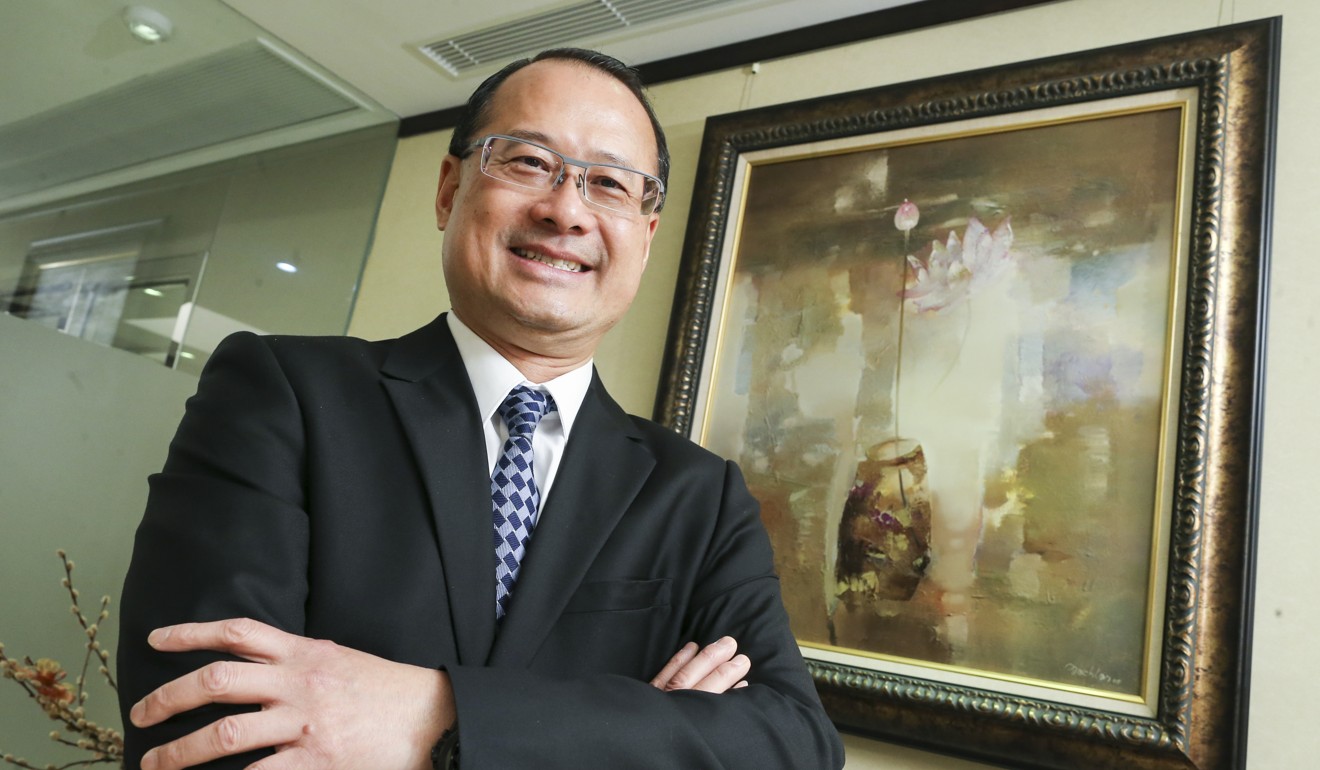
Hong Kong must push for best role in Greater Bay Area plan, Chinese commerce chamber chief says
Business leader says the city can’t afford to wait for Beijing to determine its place in regional development scheme and should promote its strong points such as finance, logistics and arbitration
A business leader representing thousands of Hong Kong companies doing business across the border has urged the city to push for suitable roles in planning the Greater Bay Area development, which aims to integrate the city with Macau and nine cities in Guangdong.
Jonathan Choi Koon-sum, chairman of the Chinese General Chamber of Commerce in Hong Kong, said the city needed to be proactively involved in the planning process being undertaken by Beijing’s National Development and Planning Commission rather than passively waiting to be given a role.
Choi, who is also a member of the mainland’s top consultative body, the Chinese People’s Political Consultative Conference, said Hong Kong should focus on five areas based on its strengths.
“They include finance, because Hong Kong is already a global finance centre,” he said in an interview with the Post. “Trade and commerce, shipping and logistics – as Hong Kong’s strength is as an entrepot and in arbitration. There will always be a lot of business disputes.
“And Hong Kong’s rule of law is a key strength, as well as innovation talent training, especially with the huge Hong Kong-Shenzhen Innovation and Technology Park to be built in the Shenzhen River loop.”

“Our position is quite simple. This is an opportunity we cannot afford to miss,” said Choi, who is also chairman of the Sunwah Group, a multinational corporation with businesses spanning food, real estate, infrastructure and technology.
“In the past, Hong Kong and cities in the Pearl River Delta were relatively distant. In recent years, they went on to made great strides while Hong Kong was just steady. But this time, our starting point is the same, so we are actively talking to Beijing about Hong Kong’s role.”
The Constitutional and Mainland Affairs Bureau told the Post it was consulting “industry sectors and relevant advisory committees on the Bay Area development plan and would fully reflect their views to the National Development and Reform Commission”.
Choi said he had spoken to the Hong Kong government a few times and had also given talks in mainland China to promote Hong Kong’s role.
Choi said the new infrastructure that was being built would allow Hong Kong to fully integrate with the Greater Bay Area, as long as the controversy surrounding the joint customs and immigration checkpoint at the West Kowloon terminus of the cross-border rail link was resolved.
Pan-democrats have vowed to block a bill on the joint checkpoint – in which national laws will be applied in part of the terminus to be leased to the mainland – as they say it would breach the Basic Law, the city’s mini-constitution.
“The job market for Hong Kong people will be vastly expanded because it will be more convenient to work in Guangzhou,” Choi said. “Hong Kong people will be able to work across the border and go back to their homes in Hong Kong by taking an hour-long journey on the high-speed rail.”

